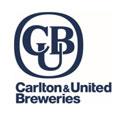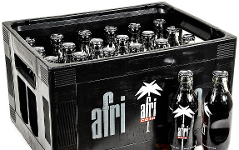Asahi
Asahi Merges Two Alcohol Businesses
 Carlton & United Breweries and Asahi Premium Beverages will be combined under the Carlton & United Breweries (CUB) name. Asahi closed its $16 billion AUD ($11.3 billion) purchase of Australia’s Carlton & United Breweries from Anheuser-Busch InBev on June 1. The combination is expected to be completed by the 4th quarter of this year. Q4 2020. Involved in the combination are Asahi Super Dry, Great Northern, Carlton Draught, Peroni, Corona, VB, Carlton Dry, Pure Blonde, Mountain Goat, Vodka Cruiser, Somersby Cider, Woodstock Bourbon, the Yaks, Pirate Life, 4Pines, and Balter. Asahi Beverages business divisions will be reduced from four to three. The non-alcohol businesses Asahi Lifestyle Beverages and Asahi Beverages New Zealand will not be affected.[Image Credit: © CUB]
Carlton & United Breweries and Asahi Premium Beverages will be combined under the Carlton & United Breweries (CUB) name. Asahi closed its $16 billion AUD ($11.3 billion) purchase of Australia’s Carlton & United Breweries from Anheuser-Busch InBev on June 1. The combination is expected to be completed by the 4th quarter of this year. Q4 2020. Involved in the combination are Asahi Super Dry, Great Northern, Carlton Draught, Peroni, Corona, VB, Carlton Dry, Pure Blonde, Mountain Goat, Vodka Cruiser, Somersby Cider, Woodstock Bourbon, the Yaks, Pirate Life, 4Pines, and Balter. Asahi Beverages business divisions will be reduced from four to three. The non-alcohol businesses Asahi Lifestyle Beverages and Asahi Beverages New Zealand will not be affected.[Image Credit: © CUB]
Asahi Group Holdings Lowers Profit Forecasts Because Of Pandemic Impact
 The Tokyo-based beverage company said the coronavirus pandemic had dampened global beer sales, especially at bars and restaurants. Asahi forecast a 38 percent drop in annual operating profit to 124 billion yen ($1.17 billion). Analysts on average had expected 164 billion yen ($1.54 billion). For the six months through June, operating profit fell 49 percent to 45 billion yen ($423 million) as beer drinkers around the world stayed away from bars.[Image Credit: © Asahi Group Holdings, Ltd]
The Tokyo-based beverage company said the coronavirus pandemic had dampened global beer sales, especially at bars and restaurants. Asahi forecast a 38 percent drop in annual operating profit to 124 billion yen ($1.17 billion). Analysts on average had expected 164 billion yen ($1.54 billion). For the six months through June, operating profit fell 49 percent to 45 billion yen ($423 million) as beer drinkers around the world stayed away from bars.[Image Credit: © Asahi Group Holdings, Ltd]
Brands
Carlsberg Tests Market For Hard Seltzers In Norway, SIngapore

Following the success of its hard seltzer launches in the U.S., the Danish brewer is testing hard seltzers in Norway and Singapore to get an early foothold for the drinks in new markets. The company launched Garage Hard Seltzer in Norway and Somersby Hard Seltzer in Singapore, and is evaluating the results as it also ponders the potential of hard seltzer in other markets. “It’s still early days, but we are positive of the opportunity,” the company said. In Norway, Garage Hard Seltzer launched in lemon & lemongrass and raspberry flavors, both with an ABV of 4.5 percent. [Image Credit: © Carlsberg Group]
Suntory Debuts “Alcohol-Free Beer-Like Beverage” In U.S.
 The Tokyo-based distiller said the new beverage, “All-Free,” is a sparkling malt-and-hops concoction containing no calories or alcohol, and no artificial flavors or sweeteners. “Carefully selected natural flavors allow All-Free to mirror the taste of real beer,” the company said. The market for nonalcoholic beer has grown more than fourfold in Japan over the past decade, while demand for regular brews shrank in 2019 for the fifteenth straight year. More Americans are drinking alcohol-free beer as well, with demand rising 14.5 percent in 2019 on the year in volume terms. Euromonitor International predicts consumption will expand 63 percent between 2019 and 2024 to 172.5 million liters. Suntory’s All-Free will be available on Amazon.com and at select U.S. retailers. A 350 ml can is $2.49; four-packs and six-packs will also be sold.[Image Credit: © WebWire]
The Tokyo-based distiller said the new beverage, “All-Free,” is a sparkling malt-and-hops concoction containing no calories or alcohol, and no artificial flavors or sweeteners. “Carefully selected natural flavors allow All-Free to mirror the taste of real beer,” the company said. The market for nonalcoholic beer has grown more than fourfold in Japan over the past decade, while demand for regular brews shrank in 2019 for the fifteenth straight year. More Americans are drinking alcohol-free beer as well, with demand rising 14.5 percent in 2019 on the year in volume terms. Euromonitor International predicts consumption will expand 63 percent between 2019 and 2024 to 172.5 million liters. Suntory’s All-Free will be available on Amazon.com and at select U.S. retailers. A 350 ml can is $2.49; four-packs and six-packs will also be sold.[Image Credit: © WebWire]
Britvic
French Government Okays Britvic Sale Of Juice Assets
Carlsberg
Carlsberg Says 2nd Quarter Revenue Slides 12.6 Percent After Lockdowns
 Half-year revenues were $4.58 billion, thanks to a drop off in second quarter revenue due to lockdowns and restrictions on gatherings across its markets. The impact on its financial results was “substantial:” operating profit fell 10.8 percent to $734 million. Approximately 25 percent of the brewer’s volumes are sold in the on-trade channel. In the six months ended 30 June, Carlsberg’s beer volumes declined organically by 6.7 percent, while its nonbeer volumes fell by 12.9 percent. In addition to COVID-19 impact, non-beer volumes were impacted by the lower sales of soft drinks at the German/Danish border.[Image Credit: © Carlsberg Breweries A/S]
Half-year revenues were $4.58 billion, thanks to a drop off in second quarter revenue due to lockdowns and restrictions on gatherings across its markets. The impact on its financial results was “substantial:” operating profit fell 10.8 percent to $734 million. Approximately 25 percent of the brewer’s volumes are sold in the on-trade channel. In the six months ended 30 June, Carlsberg’s beer volumes declined organically by 6.7 percent, while its nonbeer volumes fell by 12.9 percent. In addition to COVID-19 impact, non-beer volumes were impacted by the lower sales of soft drinks at the German/Danish border.[Image Credit: © Carlsberg Breweries A/S]
Market News
Asahi Consolidates European Beer Businesses As Pandemic Bashes Sales
 After the company’s European operations posted a pandemic-related 11 percent drop in 2nd quarter sales, and a 20 percent slide in volumes, the company said it is consolidating its two European businesses into one under the new name Asahi Europe International, headquartered in Prague. Sales and volumes were down because of the closure of bars and restaurants in many markets. Off-premise sales increased but not enough to offset on-premise losses. Despite signs of alate 2nd quarter recovery, second-half sales in Europe were expected to remain depressed by an estimated mid-single digits. Sales in Japan were even more badly-affected by the coronavirus, down 17 percent for the first half and 24 percent for the 2nd quarter. The company also said it will consolidate Carlton United Breweries (CUB) into one Oceania hub from October comprising Asahi Lifestyle Beverages, Asahi Premium Beverages, CUB, and Asahi Beverages New Zealand.[Image Credit: © Asahi Group Holdings, Ltd.]
After the company’s European operations posted a pandemic-related 11 percent drop in 2nd quarter sales, and a 20 percent slide in volumes, the company said it is consolidating its two European businesses into one under the new name Asahi Europe International, headquartered in Prague. Sales and volumes were down because of the closure of bars and restaurants in many markets. Off-premise sales increased but not enough to offset on-premise losses. Despite signs of alate 2nd quarter recovery, second-half sales in Europe were expected to remain depressed by an estimated mid-single digits. Sales in Japan were even more badly-affected by the coronavirus, down 17 percent for the first half and 24 percent for the 2nd quarter. The company also said it will consolidate Carlton United Breweries (CUB) into one Oceania hub from October comprising Asahi Lifestyle Beverages, Asahi Premium Beverages, CUB, and Asahi Beverages New Zealand.[Image Credit: © Asahi Group Holdings, Ltd.]
Regulation
U.K.’s Competition Regulator To Examine Proposed Carlsberg/Marston’s JV
 Concerns about a possible negative impact on competition have led the British government to take a closer look at a proposed joint venture between Carlsberg U.K. and Marston’s. The proposed 60:40 joint venture would be called Carlsberg Marston’s Brewing Company. The companies said they would provide their brewing and distribution assets to the new beer company, which would have a combined value of £780 million ($1 billion). The Competition and Markets Authority (CMA) has launched a phase 1 investigation into the merger to consider whether the merger will result in a “substantial lessening of competition within any market or markets in the U.K. for goods or services.”[Image Credit: © Carlsberg Breweries A/S]
Concerns about a possible negative impact on competition have led the British government to take a closer look at a proposed joint venture between Carlsberg U.K. and Marston’s. The proposed 60:40 joint venture would be called Carlsberg Marston’s Brewing Company. The companies said they would provide their brewing and distribution assets to the new beer company, which would have a combined value of £780 million ($1 billion). The Competition and Markets Authority (CMA) has launched a phase 1 investigation into the merger to consider whether the merger will result in a “substantial lessening of competition within any market or markets in the U.K. for goods or services.”[Image Credit: © Carlsberg Breweries A/S]
Suntory
Lower-Calorie Canned Cocktails To Be Launched By Beam Suntory In 2021
 Beam Suntory will launch a variety if lower-alcohol, lower-sugar RTD beverages into the U.S. market in 2021. The company already sells RTDs in Japan, Australia and Germany, but introducing the new products in the U.S. under the Jim Beam and other spirits brands will be a priority, according to CEO Albert Baladi. He also said canned cocktails is "a space where we think we've got a very strong right to win," along with the "refreshment" sector of the RTD category, which includes the new wave of 100-calorie RTDs.[Image Credit: © Beam Suntory, Inc.]
Beam Suntory will launch a variety if lower-alcohol, lower-sugar RTD beverages into the U.S. market in 2021. The company already sells RTDs in Japan, Australia and Germany, but introducing the new products in the U.S. under the Jim Beam and other spirits brands will be a priority, according to CEO Albert Baladi. He also said canned cocktails is "a space where we think we've got a very strong right to win," along with the "refreshment" sector of the RTD category, which includes the new wave of 100-calorie RTDs.[Image Credit: © Beam Suntory, Inc.]
Copyright 2026 Business360, Inc.

